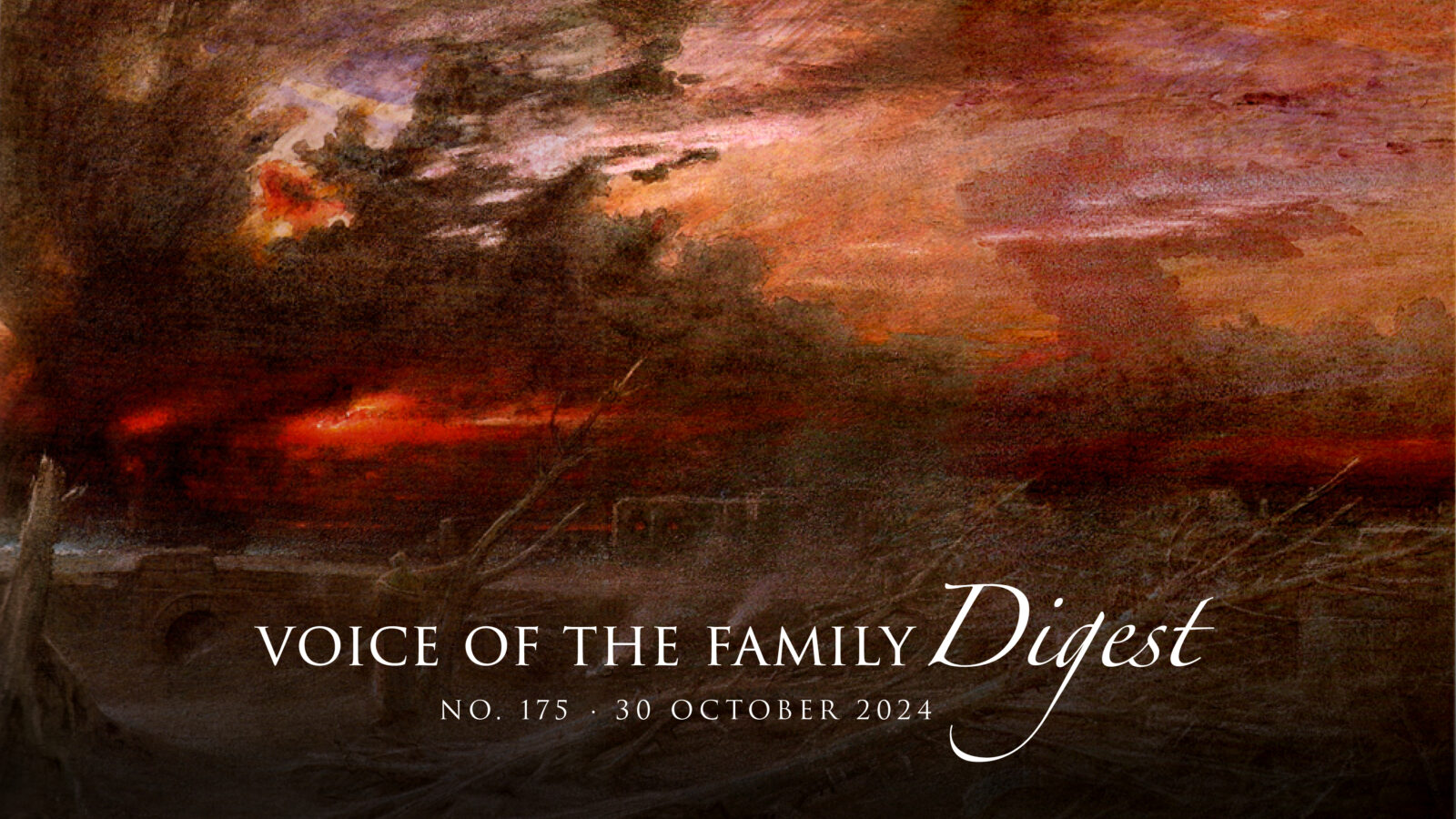Signs of the end: sermon on the twenty-fourth Sunday after Pentecost
30 October 2024

“When you shall see all these things, know that it is nigh, even at the doors.”
The Catechism of the Council of Trent, published in the sixteenth century by the authority of Pope St Pius V, speaks of three great signs that must precede the end of the world and our Lord’s return in glory. These three signs are all mentioned in the bible; they are not the only ones that Scripture mentions, but they are especially clear. These signs are the preaching of the gospel to all nations, a revolt, and the coming of antichrist.
First, the preaching of the gospel throughout the world. Our Lord says in His prophecy on the mount of Olives, just before where today’s gospel began, “This gospel of the kingdom shall be preached in the whole world, for a testimony to all nations, and then shall the consummation come.” Why did God the Father will that the gospel be preached everywhere? To manifest His love for all His children, and for His only Son. That’s why, down the ages, He has inspired missionaries to leave their homes and to travel into the unknown to bring the light of Christ into dark places. Notice that Jesus does not say that the gospel will be preached equally in all lands. And if God gives more graces to one people than to another, then no one has the right to say that He is being unjust. After all, from those to whom more has been given, more will be required. That applies to countries as well as individuals. But since Christ has redeemed all nations, God the Father wills that all nations should hear His Name before history comes to an end.
That is the first sign. What is the second one? St Paul calls it simply “a revolt”. “Let no man deceive you,” he says, “for the day of the Lord will not arrive, unless there come a revolt first.” The word is also translated sometimes as “rebellion” or as “apostasy”. What does he have in mind? Surely, an apostasy from God, from Christ, from the truth. I think St Paul was looking down the centuries at the work that he and his fellow apostles — and the missionaries bishops after them — would accomplish: the work of Christianising the world. He was seeing that the Christian world would last a long time but that, in the end, human sins would pull it down. It is not that the sacraments could grow less powerful or the truths of the faith could become less true, but that too many men would turn their backs on them. The powerful ones of this world would try to make for themselves a world without Christ. Like the ungrateful citizens in the parable, they would say, “We do not want this man to reign over us anymore.”
And that is what will prepare the way for the third sign of which Scripture and the catechism speak, namely, the coming of the man whom they call the antichrist. This is some human being who will be, while he lives, the most successful of the opponents of our Lord. St Paul calls him the “man of sin”, and “the lawless one”. Presumably, he will be some kind of world leader, political or religious, or rather both at the same time. We need not suppose that this person will overtly attack our Lord and Saviour. He will be more likely to speak with apparent respect of at least some of the teachings of the Lord. Otherwise, how would he fool Christians? Yet our Lord tells us, “false prophets and false Christs … will deceive (if possible) even the elect.” If that is true of false Christs in general, how much more of their head, the man to whom Jesus does not deign to refer.
You may want to know whether I think that this third sign is close at hand or not. But I am not a prophet and so I cannot tell you. It does seem that the first two signs are either fulfilled, or well on the way to being so, especially in comparison with the time of the Council of Trent. With the exception perhaps of a few remote tribes, the Name of Jesus is known everywhere. And, alas, it would be hard to deny that we are living in a time of accelerating apostasy, with many once-Catholic nations grown faithless and even contracepting themselves out of existence. But Scripture does not tell us how long after these first two signs we must wait for the third. Nor, I think, is God the Father going to reveal his name or his date of coming in advance. Why not? To honour both us and His Son. He wills that our simple fidelity to Jesus will be light enough to guide us through any darkness.
